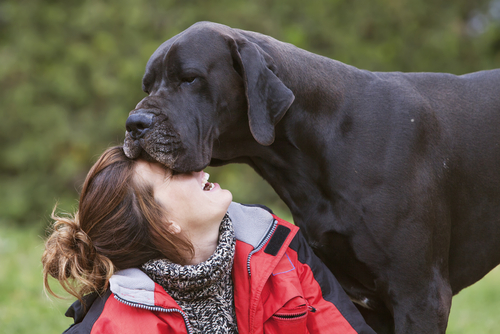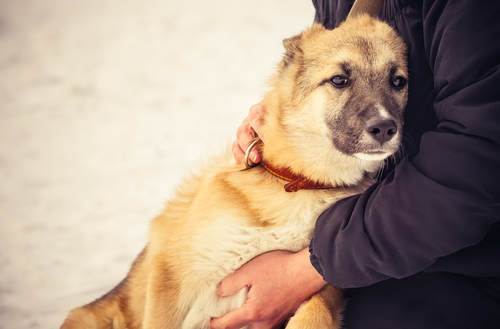They drag us from burning buildings, alert us to medical emergencies, battle intruders, and even take bullets for us, but what is it that motivates dogs to risk their own lives for humans? Love? Gratitude? Preservation of the life they hold dear? All of these things may play a role, but recent research suggests it comes down to empathy.
The canine species seem to have emotions so closely linked to our own that they are willing to make the ultimate sacrifice to protect us.

Take for example, studies on “contagious yawning”. The phenomenon is due to mirror neurons in the brain. Basically, the more empathetic an animal is, the more likely they are to unconsciously mimic the facial expressions and behaviors of their companions.
Yawning is often used during experiments measuring empathy because it is such a clear mirror response. In a 2013 study, 21 out of 29 dogs yawned after a reasearcher did the same – pretty strong evidence that they empathize with our kind!
Ramiro Joly-Mascheroni, co-author of the study, acknowledged the dogs may have been simply yawning because they were tired or stressed, but he also noted that none of the dogs yawned between sessions or during the control phase. If the yawning evidence is to be believed, dogs may have the capacity for empathy of a four or five-year-old child.

Dr. Brian Hare, founder of the Duke University Canine Cognition Center, said canines have learned to “read our minds” and bond with humans in a way no other animal can. Dr. Hare describes the bond as being similar to that between a parent and child.
“When parents and children gaze into each others’ eyes, the feel-good hormone oxytocin is released,” said Hare. “It creates this oxytocin loop that encourages us to protect and care for our babies.”
The same reaction occurs between humans and dogs. When your dog stares into your eyes, your oxytocin rises, and vice versa.
“Dogs have basically hijacked this pathway that was meant to be between us and our kids,” Hare said. “So when your dog is just staring at you for no apparent reason, they don’t necessarily want anything. They are just hugging you with their eyes.”

Annika Huber, a doctoral student at Switzerland’s University of Bern Veterinary Public Health Institute, studies dog behavior. She says that true emotional bonding between humans and dogs is difficult to prove scientifically due to communication barriers, but MRI technology has shown that specific parts of a dog’s brain light up when the upbeat voice of their human is heard.
Another study indicated that dogs can tell the difference between various emotional human facial expressions. Some dogs seem to be more “tuned in” and responsive to our needs than others, adding to the conundrum of empathetic behavior.

Although there is no scientific data to definitively answer the question of why a dog would lay down its own life for a human, most dog owners don’t need proof. They will tell you the answer is simple: unconditional love. A love that sometimes manifests itself in the most heroic and miraculous ways.
H/T to Click 2 Houston
Featured Image via Facebook/American Humane Hero Dog Awards
